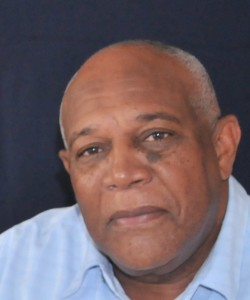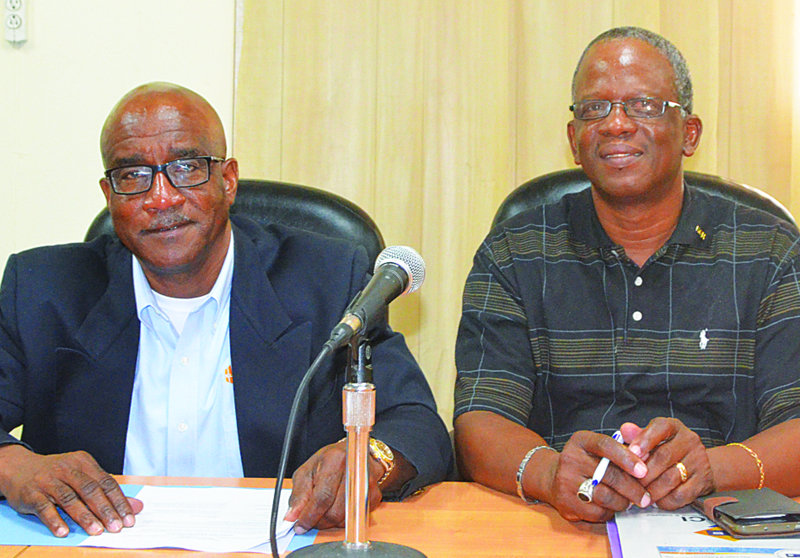
Over the past months a number of persons have approached me with the question: “Banks, boy, when you all having elections?” To which I usually reply: “Only the Chief Minister really knows. He is the one who has the right to decide when elections are to be held/called!” A usual reaction on these occasions from such persons would be: “Lord if dat so — he gon carry we down to the wire!” The conclusion implicit in that comment being that if the Chief Minister is retiring after this term he is going to squeeze every last drop of privilege, salary, perks, travel and travel allowance out of the job before he goes home. I shudder to think that this would really be the motivation for Mr. Hughes to hold on to a dysfunctional Government that has been stumbling from one error to another ever since it came to Office. A Government with two inexperienced Ministers — who are frequently quarreling with their public servants and complaining that they cannot get anything done.
The question is also rooted in the fact that many Anguillians have come to realize that the Government has not done anything significant in over four and a half years — so it would be most unlikely that it could do so in the next six months or so. I use the term “or so” because even though elections are constitutionally due in February 2015 — the Government still has an additional sixty days after that to hold elections. That could mean as late as April 15, 2015 — but it would also mean that the Chief Minister is not convinced that he has done sufficient during his term to be successful in a General Election. In other words, he is not confident in his record and is hoping for a miracle to turn things around in the last days.
I had predicted earlier this year that the Chief Minister would call the elections in October or November. My reasoning was based on the fact that I expected him to run again and I felt that he would not want to be debating a budget during the election campaign. Since it now appears that he will not be running in the next election I am certain that he would not want to have the election before he attends the Joint Ministerial Conference in London in late November early December. Contrary to popular belief Hubert never misses an opportunity to visit the Motherland. He loves to travel but he particularly likes to travel to London.
While it may be as a result of wishful thinking there is still a large segment of the population that is convinced that there will still be a “snap election” in November. This prediction is based on the fact that the Government is holding so many public meetings that it seems that it is preparing to go to the polls. In addition, the Government’s haste in trying to push through a number of controversial policy decisions and projects at this time, gives the impression that it is feverishly searching for something to excite the electorate.
There is also the well-known theory that the best time to call elections is when people are working. It is believed that the proposed opening of Malliouhana in November will create more jobs and satisfied workers/voters. In short, it is hoping that these last minute actions will cause the voters to forget all the “do-nothingness” of the past four and a half years.
There are also other views in the Government that may influence the Chief Minister’s decision. For example, prospective candidates within the party are anxious to go to the polls and hopefully get elected. Haydn, the Parliamentary Secretary, for example, is reported to have been putting tremendous pressure on the Chief Minister himself to step down and has basically been announcing himself as the AUM candidate for Road South. Even though there seems to be much reluctance on the part of the Chief Minister and his supporters — it appears that his son (Haydn) will prevail. Rumour also has it that AUM candidates like Haydn, Patrick (commonly known as “Sheriff”) and Elkin are among those “chomping at the bit” to get on with the elections.
Then there is the question of who will lead the party into the next election. Many pundits believe that this subject of itself is a major divisive issue within the AUM party. There are several successors being posited each of whom have their faction of supporters. However, supporters have declared that the basis for Dr. Webster’s decision to join the party was that he would be appointed leader. Obviously, longstanding members of the party including the “cross the floor candidate”, Jerome, have reportedly expressed serious objection to this decision. To keep these warring factions at bay Hubert has been saying that he will lead the party into the next election from “the sidelines” and name his successor after the elections. As ridiculous as this may sound the fact that he was able to get elected with “an invisible plan” suggests that he may be also capable of pulling it off. The real test would be whether in the heat of the election campaign this would be sufficient to quell a “civil war” within the AUM party?
There is also the matter about the budget. Is the Chief Minister sufficiently confident that he can withstand the political wrangling of a budget debate at this time? He had railed the past administration for not taking a budget to the House before the February 2010 election. The truth is that with elections so early in the year the past Government decided that that exercise should be left up to the next Government. However, if Hubert decides to “go down to the wire” in April, there will be little time for an incoming Government to properly carry out a budget exercise. Especially given the amount of eleventh hour initiatives being planned that will affect assumptions in the budgetary process. For example, it appears that the Government is now planning to pay public servants a part of the monies owed to them before elections. While this is desirable in keeping with its criticisms of the past government it should be done in the context of a transparent budget exercise. In fact, such a payment should have been made to the public service years ago.
Taking all of the foregoing into consideration my final prediction is that elections will be held in January/February next year. No Anguillian Government has ever held an election campaign in Lent. The 2015 Lenten season begins on February 18th and ends on April 5th with the Easter celebrations. The Chief Minister must give approximately twenty (20) clear days between the dissolution of the House and the calling of elections. It would therefore not be possible for him to observe this Anguillian Christian tradition and meet the constitutional requirements for calling elections. And there is not sufficient time after Easter to allow for a proper budgetary exercise.
So all I can say, to the many persons who can’t wait for elections to be called, is that one thing is certain: you probably will not have to worry about the tension of an election campaign in the middle of the sacred Lenten season. And, hopefully, with the elections behind you by the beginning of Lent — I can now take this opportunity to wish you a Happy Easter when it comes!








